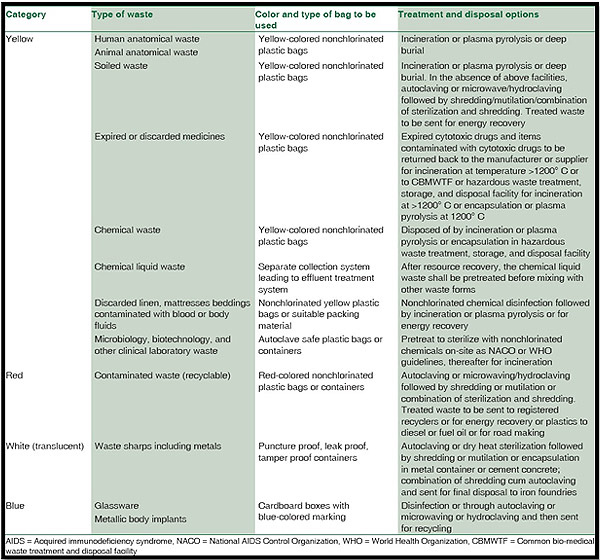Get This Report about Reclaim Waste
Get This Report about Reclaim Waste
Blog Article
Unknown Facts About Reclaim Waste
Table of ContentsReclaim Waste - QuestionsThe Basic Principles Of Reclaim Waste All About Reclaim WasteThe Single Strategy To Use For Reclaim WasteThe Single Strategy To Use For Reclaim Waste
Through proper fluid waste administration, business can reduce energy-intensive treatment procedures and disposal prices. They also reach save sources and assign them in other pertinent processes. There are countless regulations that secure public wellness and the atmosphere. By complying with a system for taking care of fluid waste, companies can prevent pricey penalties and fines and avoid negative promotion.(https://www.ted.com/profiles/48198485/about)Collect representative samples from numerous factors within the waste stream to make certain accuracy. Fluid waste, specifically unsafe ones, poses considerable dangers throughout this step.

Sanitation (e.g., chlorination, ultraviolet light, ozonation) and nutrient elimination (e.g., denitrification and phosphorus obliteration) are recommended under stringent regulations. Numerous business broke a number of liquid waste disposal guidelines in recent years.
Reclaim Waste Things To Know Before You Buy

Shallow containers consist of liquid waste that is allowed to evaporate via all-natural procedures. This type of disposal is subject to strict ecological guidelines due to possibly unsafe emissions.
The findings should be documented, evaluated, and kept not just for entry to regulative authorities but also for making renovations in the future. Share information with pertinent stakeholders (e.g., employees, regulative federal government firms, and neighboring communities) to preserve openness and responsibility.
Understanding these can assist them efficiently handle their operations and decrease their ecological effect. Business that can not spend in centers ought to consider teaming up with the public market for better remedies.
See This Report about Reclaim Waste
By carrying out thorough management systems that consist of therapy and reusing strategies, regular monitoring, threat analyses, and adherence to regional and government policies, commercial facilities can contribute to the defense of groundwater products, guaranteeing their schedule for future generations (liquid waste disposal). Let's my blog dig into the significance of reliable fluid waste monitoring in the industrial field, focusing on its ramifications for protecting groundwater sources
The air pollution of groundwater resources due to inappropriate liquid waste management in the commercial field has far-reaching effects for human health and wellness, agriculture, and the environment in its entirety. Several of the prospective influences created by such pollution consist of: Contaminated Alcohol consumption Water Materials: As groundwater provides a significant part of our drinking water, contamination from industrial tasks can bring about hazardous chemicals and microbes entering our water systems, positioning health and wellness risks for human beings.
Decreased Agricultural Efficiency: Farming counts heavily on groundwater for irrigation; as a result, contaminated water can impede crop yields, contaminate farming products, and affect food safety. Offered the relevance of preserving groundwater sources, it is important for companies to take a proactive position in handling their liquid waste properly and stopping contamination.
The Buzz on Reclaim Waste
Liquid waste can pollute land and contaminate waters. Under the Security of the Environment Procedures Act 1997, services that produce liquid waste are required to manage it in a way that safeguards the environment and the community. Information about handling and storing liquid waste, replying to spills and minimizing fluid waste is available in the complying with reality sheets and assistance:.
The function of waste management experts in guarding this precious source can not be overstated. Contaminated water and infected effluent management: Guaranteeing that unsafe fluids are securely eliminated and treated before they can damage our water sources.
Hence, integrating sustainable fluid waste administration right into financial planning boosts economic stability and secures the setting, demonstrating the value of this technique. In final thought, adopting specialist liquid waste administration methods is crucial for ensuring a lasting future, securing our atmosphere and protecting the wellness of future generations.
When it comes to disposing of waste, adhering to proper treatments is critical for a multitude of factors. Correct garbage disposal is not nearly cleanliness; it has to do with guaranteeing the wellness of our environment, health, and the reliable use of resources. Understanding the importance of efficient waste monitoring can assist all of us contribute to a much healthier, cleaner earth.
Reclaim Waste - An Overview
Efficient waste monitoring aids maintain tidy streets and public areas, lowering the visual effect of clutter and guaranteeing that waste does not hurt wildlife. When waste is not disposed of effectively, it can cause contamination, where unsafe substances can seep right into the dirt, water supply, and the air, creating long-term ecological issues.
Report this page